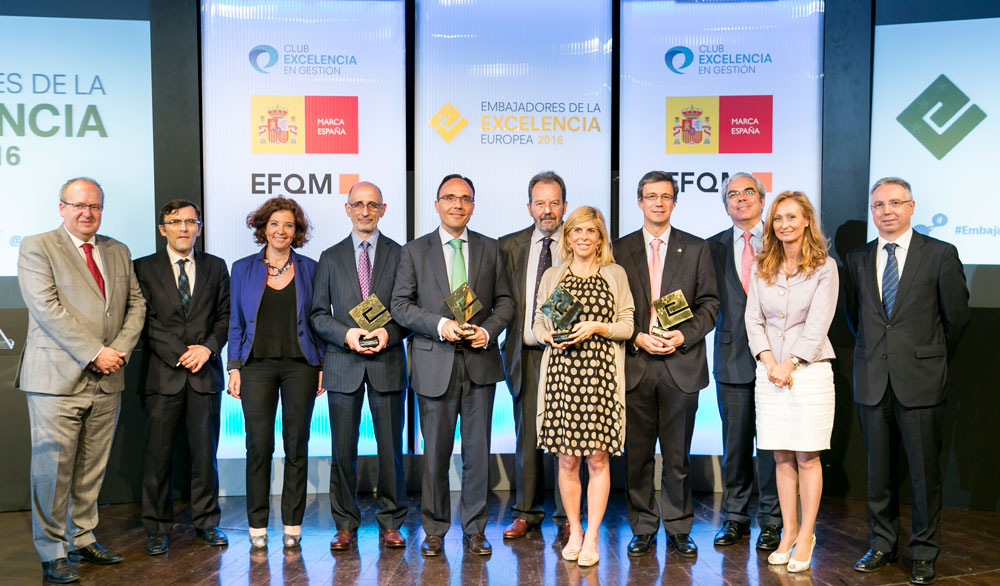In an increasingly changing and competitive environment, the pursuit of excellence in management has become a fundamental pillar for companies in the process of value creation.
In general, the Excellence Models that exist around the world are very much alike: Deming in Japan, Malcom Baldrige in the US, EFQM in Europe, and the “Latin American Model” supported by the Ibero-American Summit embody similar principles and only vary in the configuration of the criteria and the weight or importance given to them.
In Europe, on 15 September 1988, 14 presidents of leading European companies (Bosch, Nestlé, Philips, etc.) met with Jacques Delors, President of the European Commission, to create the European Foundation for Quality Management (EFQM).
The purpose of this foundation was – and is – to increase the competitiveness of organisations and support sustainable development of economies in Europe. To this end, over the past 25 years they have worked on developing a management model that enables companies to achieve and maintain sustainable results over time, meeting the expectations of all their stakeholders.
The EFQM model allows the excellence of a company to be evaluated via five Enabler criteria (leadership, strategy, people, partnerships/resources, processes/products/services) and four Results criteria (customers, people, society, key performance results).
As a result of both internal and external annual evaluations as well as comparisons and sharing best practices with other companies, opportunities for improvement are identified that allow the process of continuous improvement to advance.
Today, in Spain alone, over 500 public and private organisations work with the EFQM model. Almost 10 years ago, Enagás began working with this model with the aim of continuing to incorporate the most advanced methodologies into the management of the company and to continue to progress to improve its competitiveness.
Since then, we have been progressing on the path of excellence and we have achieved various awards for our management model such as obtaining the EFQM +500 Seal of Excellence, the highest acknowledgement of the model.
Along the same lines, Enagás was recently appointed Ambassador of European Excellence 2016 by the Excellence in Management Club (a partner of EFQM in Spain) and also High Commissioner for Marca España, a recognition that fills us with pride and rewards our efforts to constantly try to improve and go beyond our own goals.
As I write these lines, I would like to also take the opportunity to congratulate the San Rafael Hospital, the tax agency of the Provincial Government of Salamanca (REGTSA) and the San Cernin School in Pamplona, three Spanish organisations that have also been recognised as Ambassadors of European Excellence 2016.
